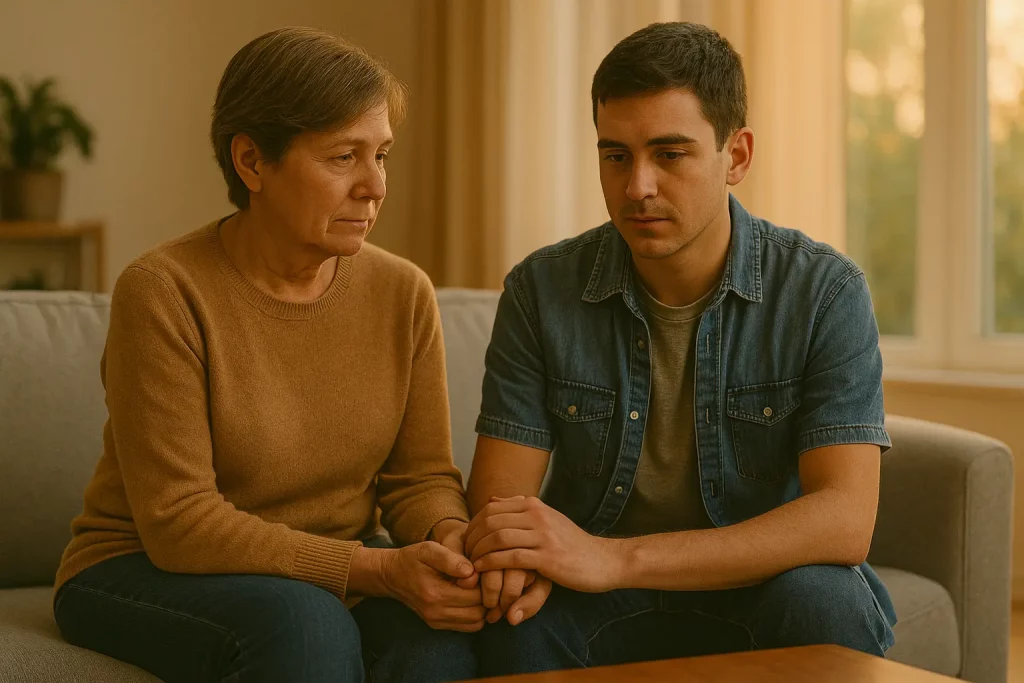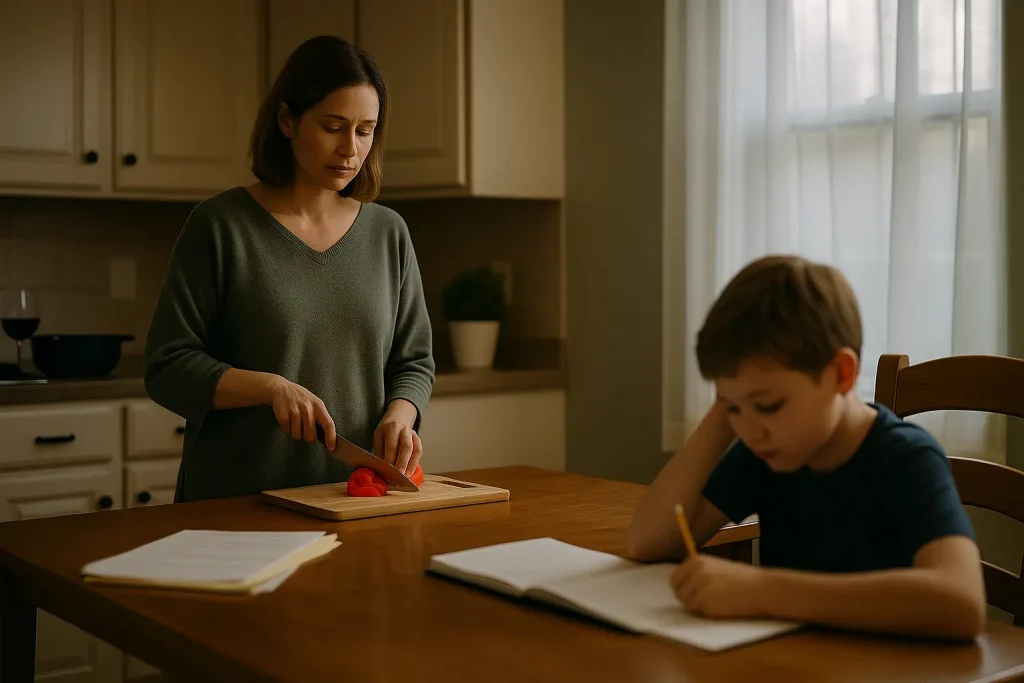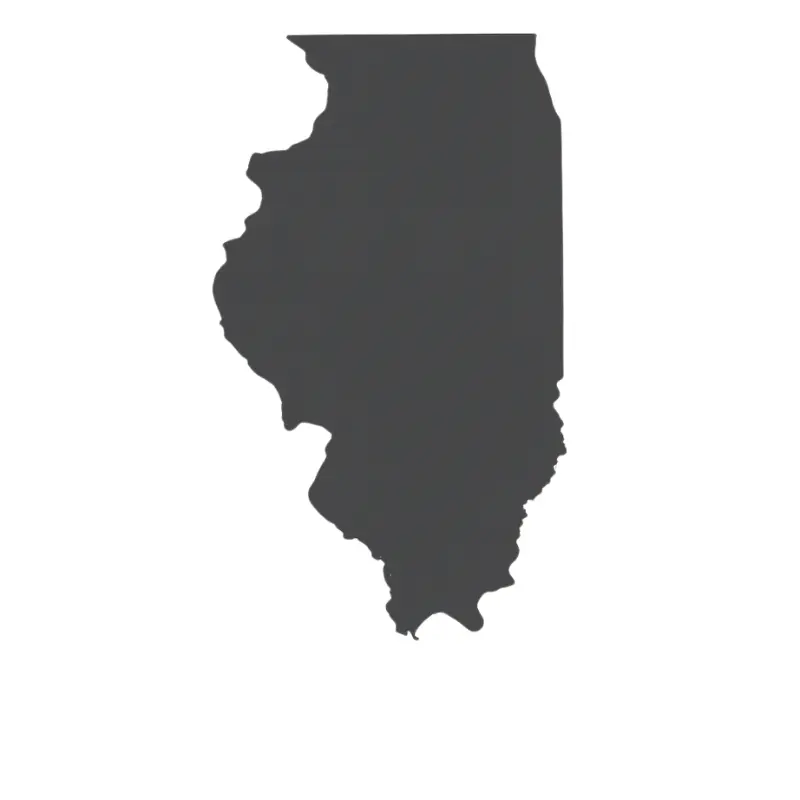Losing a loved one is devastating – especially when their death was caused by someone else’s careless or wrongful actions. A wrongful death lawsuit gives grieving families a legal pathway to seek justice and financial compensation for their loss. In Illinois, these cases are governed by the Wrongful Death Act (740 ILCS 180), which outlines who can bring a claim, what damages are recoverable, and how compensation is distributed.
Whether the death resulted from a car accident, a dog bite, medical malpractice, nursing home neglect, or another preventable event, this guide explains how wrongful death lawsuits work in Illinois. It’s designed to help families understand their rights and what steps to take next. In this guide, we’ll explain who can file a wrongful death lawsuit in Illinois, what needs to be proven, what types of damages are recoverable, how compensation is divided, and why hiring an attorney early is essential.
Key Takeaways
- Illinois allows wrongful death claims for both economic and emotional losses, including grief, sorrow, and loss of companionship – with no cap on damages in most cases.
- The surviving spouse and next of kin are the beneficiaries, and compensation is distributed based on their level of dependency on the deceased – not equally.
- The personal representative must act within strict time limits, usually two years – though exceptions exist for criminal cases and minors.
- Hiring an experienced wrongful death attorney early is essential to protect your rights, gather evidence, and ensure the claim is filed correctly and on time.
Who Can File a Wrongful Death Lawsuit in Illinois?
Under Illinois law, a wrongful death lawsuit must be filed by the personal representative of the deceased person’s estate. This person is responsible for bringing the claim on behalf of the surviving spouse and next of kin, who are the ultimate beneficiaries of any compensation awarded.
The personal representative is usually appointed in one of two ways:
- By a will – If the decedent had a valid will, it likely named an executor. Once appointed by the probate court, that executor serves as the personal representative for the lawsuit.
- By court appointment – If there is no will, Illinois probate law provides a priority list for who may be appointed. The decedent’s spouse or adult children typically have the highest priority, but more distant relatives such as siblings or cousins may be appointed if closer relatives are unable or unwilling (740 ILCS 180/2.1).
In some situations, particularly when the only purpose of opening an estate is to bring a wrongful death lawsuit, a special administrator can be appointed by the judge in the Law Division or the court handling the civil case. This process allows the lawsuit to move forward without the need to fully probate the estate.

Who Benefits from a Wrongful Death Lawsuit?
Even though the personal representative files the case, the law ensures that damages are awarded for the exclusive benefit of the surviving spouse and next of kin. This includes:
- Spouses
- Children (biological or adopted)
- Other close relatives, if no immediate family survives
The law treats adoptive relationships equally – an adopted child or parent is considered next of kin for purposes of wrongful death recovery (740 ILCS 180/2(f)).
What If There’s No Immediate Family?
When there are no eligible family members, the law still allows for recovery of certain expenses—such as medical, funeral, and legal costs – by the individuals or providers who furnished those services.

What Must Be Proven in a Wrongful Death Case?
To succeed in a wrongful death lawsuit in Illinois, the personal representative must show that the death was caused by conduct that would have entitled the deceased to file a personal injury lawsuit had they survived. In legal terms, the death must have resulted from a “wrongful act, neglect, or default”.
Elements of a Wrongful Death Claim
The key elements that must be proven are:
- Duty of Care – The defendant owed a legal duty to the deceased person. For example, drivers must obey traffic laws, and property owners must maintain safe premises.
- Breach of Duty – The defendant failed to meet that duty through an act of negligence, recklessness, or intentional misconduct.
- Causation – The breach of duty directly caused the person’s death. It must be shown that the death would not have occurred but for the defendant’s actions.
- Damages – The surviving family members suffered measurable losses as a result of the death, including financial, emotional, or relational harm.
What Counts as a “Wrongful Act”?
Wrongful death claims can arise from many types of incidents, including:
- Car, truck, or motorcycle accidents
- Medical malpractice (though punitive damages are barred in these cases)
- Workplace accidents
- Criminal acts (e.g., homicide, DUI)
- Dangerous or defective products
- Unsafe property conditions (premises liability)
In essence, if the deceased could have filed a personal injury claim had they survived, their family likely has grounds for a wrongful death action under Illinois law (740 ILCS 180/1).

Damages Recoverable in a Wrongful Death Lawsuit
Illinois law allows surviving family members to recover both economic and non-economic damages in a wrongful death case. These damages are intended to compensate the family for the real losses caused by their loved one’s death – not to punish the wrongdoer (except in limited cases where punitive damages apply).
Economic Damages
Economic damages cover the tangible financial impact of the death, including:
- Loss of the deceased person’s income or financial support
- Loss of benefits, such as health insurance or retirement contributions
- Funeral and burial expenses
- Loss of household services, like childcare or home maintenance
For example, if a deceased father was the primary breadwinner, his family can recover the value of the wages and benefits he would likely have earned and contributed over his working life.
Non-Economic Damages
Illinois law also recognizes the emotional and relational losses caused by a wrongful death. Non-economic damages may include:
- Grief and sorrow
- Mental suffering
- Loss of companionship, love, guidance, and consortium
Since a 2007 legislative change, juries are specifically allowed to award damages for grief, sorrow, and mental suffering of the surviving spouse and next of kin. These non-economic damages are often substantial because they address the human impact of loss – something no paycheck can replace (740 ILCS 180/2(a)).
Punitive Damages
Punitive damages are different from the compensatory damages discussed earlier. While compensatory damages are designed to make the family whole, punitive damages are intended to punish the wrongdoer and deter similar conduct in the future.
When Are Punitive Damages Available?
Historically, Illinois courts were reluctant to allow punitive damages in wrongful death cases. However, as of August 11, 2023, amendments to the Illinois Wrongful Death Act now explicitly allow punitive damages in cases where they would have been available if the decedent had survived the injury.
Punitive damages are now permitted in addition to compensatory damages – but only in cases that warrant punishment. This includes conduct that was:
- Willful or wanton (e.g., knowingly disregarding safety)
- Fraudulent or malicious
- Grossly negligent
Important Limitations
There are several key exceptions where punitive damages are still not available, including:
- Medical malpractice cases
- Legal malpractice cases
- Claims against state or local governments, or their employees acting in official capacities
These limitations are outlined in both the Wrongful Death Act and the Local Governmental and Governmental Employees Tort Immunity Act.
In eligible cases, though, punitive damages can significantly increase the potential recovery and may apply in situations like drunk driving fatalities, egregious product failures, or egregious safety violations.
Once a verdict or settlement is reached, the next question is how those funds are shared among surviving family members.
How Is Compensation Divided Among Family Members?
Once a wrongful death lawsuit results in a settlement or judgment, the next step is determining how the damages are distributed. In Illinois, this process is not automatic; it is guided by the statute and often requires court approval.
Distribution Based on Dependency
Illinois law provides that damages recovered in a wrongful death action must be distributed among the surviving spouse and next of kin “in the proportion, as determined by the court, that the percentage of dependency of each such person upon the deceased person bears to the sum of the percentages of dependency of all such persons” (740 ILCS 180/2(b)).
This means compensation isn’t necessarily split equally. Instead, the court looks at:
- How financially or emotionally dependent each family member was on the decedent
- The nature of each person’s relationship to the deceased
- Factors such as age, disability, and financial need
For example, a young child who was fully dependent on the deceased parent may receive a larger share than an adult child who lived independently.
Role of the Court
In most cases, the court approves or decides the allocation of damages. This happens either:
- As part of the probate process, if the estate was opened, or
- Directly in the wrongful death case, especially if a special administrator was appointed solely for the lawsuit
The court may hold a hearing to evaluate each beneficiary’s level of dependency, particularly when there is disagreement among family members.
The Role of Survival Actions
In addition to a wrongful death lawsuit, families in Illinois may also be able to bring a survival action. Although these claims are often filed together, they serve a different legal purpose.
What Is a Survival Action?
A survival action is brought under the Illinois Survival Act (755 ILCS 5/27-6) and allows the estate to pursue claims that the deceased could have filed had they lived. This includes:
- Pain and suffering endured before death
- Medical expenses incurred as a result of the injury
- Lost wages between the injury and the time of death
- Property damage
- Other claims that “survived” the person’s death
For example, if a person was badly injured in a car accident but died a week later in the hospital, their estate could seek compensation for the suffering, treatment costs, and income lost during those final days.
How It Differs from Wrongful Death
The key distinction is who suffers the harm:
- A wrongful death claim compensates family members for their own losses caused by the death.
- A survival claim compensates the estate for the harm the deceased suffered before passing away.
While damages from a wrongful death claim are distributed directly to family members, damages recovered through a survival action become part of the decedent’s estate and are distributed according to the will or Illinois intestacy laws (755 ILCS 5/27-6).
Can Both Claims Be Filed?
Yes. In many cases, it’s appropriate – and strategic – to file both a wrongful death and a survival action simultaneously. Together, they provide a fuller picture of the loss and maximize potential recovery for the family.
While most wrongful death claims involve adults or children, Illinois law also allows families to recover damages for the loss of an unborn child. These cases follow a distinct set of legal rules.
Special Rules for Fetal Death and Unborn Children
Illinois is among the states that explicitly allow families to bring a wrongful death claim for the death of an unborn child – regardless of the stage of gestation. This is outlined in Section 2.2 of the Illinois Wrongful Death Act (740 ILCS 180/2.2).
Fetal Death Is Recognized Under the Law
Illinois law states that “the state of gestation or development of a human being when an injury is caused, when an injury takes effect, or at death, shall not foreclose” a wrongful death action. In other words, parents can file a lawsuit even if the child died before birth, as long as the death was caused by a wrongful act, neglect, or default.
This provision makes Illinois law more inclusive than some states, where fetal wrongful death claims are only permitted if the fetus was viable or live-born.
Important Exceptions
There are, however, several important exceptions to this right:
- No claim may be brought for a legal abortion, where the abortion was lawfully performed and consented to.
- No claim may be brought against a physician or medical institution if:
- The pregnancy was unknown to the provider
- The provider had no medical reason to suspect the pregnancy
- The death resulted from an abortion permitted by law
- No claim may be brought against the pregnant person themselves, even if their conduct caused the fetal death.
These exceptions are intended to balance fetal wrongful death rights with reproductive rights and provider protections.
Regardless of the type of wrongful death claim, strict deadlines apply.

Statute of Limitations and Filing Deadlines
Time is a critical factor in any legal case – and wrongful death lawsuits are no exception. Illinois law sets firm deadlines for when these claims must be filed. Missing the deadline can mean permanently losing the right to seek compensation.
Standard Time Limit: 2 Years
In most cases, a wrongful death lawsuit in Illinois must be filed within two years of the date of death. This applies to deaths caused by negligence, recklessness, or other wrongful acts not tied to a criminal case (740 ILCS 180/2(d)).
Extended Deadlines for Criminal Conduct
Illinois law makes an important exception for deaths resulting from violent, intentional conduct or certain criminal offenses (740 ILCS 180/2(e)). In these cases, the deadline may be extended:
- Up to 5 years from the date of death
- Or 1 year after the criminal case ends, whichever is later
This longer time frame applies to deaths caused by crimes like:
- First- or second-degree murder
- Voluntary or involuntary manslaughter
- Reckless homicide (including for an unborn child)
- Drug-induced homicide
These extended deadlines only apply to claims against the individual who allegedly committed the violent act – not to claims against third parties like employers or product manufacturers.
Special Rule for Minors
If a person entitled to file a wrongful death claim was under 18 years old at the time of the death, they have 2 years from the date they turn 18 to bring the claim (740 ILCS 180/2(f)).
What If a Claim Is Filed Late?
If a lawsuit is filed after the applicable deadline, the defendant can ask the court to dismiss the case. In most instances, courts have little discretion to allow late filings, even if the family was unaware of their rights or still grieving.
That’s why it’s critical to speak with an attorney as soon as possible after a death that may involve negligence or wrongful conduct.

How Illinois Law Compares to Other States
Wrongful death laws vary significantly across the country. While most states provide some form of recovery for surviving family members, Illinois stands out in several ways – both in terms of breadth of recovery and who can sue.
Broader Recovery for Emotional Losses
Illinois allows damages not just for financial losses, but also for grief, sorrow, and mental suffering. This distinguishes it from states that only compensate for economic loss or limit non-economic damages to specific relationships (such as only spouses or minor children).
Since 2007, Illinois juries have been allowed to award damages for grief explicitly – a right not recognized in many other states.
No Cap on Damages
Illinois currently does not cap non-economic damages in wrongful death cases. While some states limit how much a jury can award for pain and suffering or emotional distress, Illinois does not – though political efforts to reintroduce caps occasionally resurface.
Note: Prior caps were declared unconstitutional by the Illinois Supreme Court, and attempts to reinstate them have generally failed.
Coverage for Fetal Death
Many states either limit or do not recognize wrongful death claims for unborn children. Illinois law expressly allows these claims regardless of gestational age, provided the death was caused by a wrongful act. This gives Illinois one of the more inclusive fetal wrongful death statutes in the country.
Limitations on Personal Injury Claims for Loss of Consortium
In contrast, Illinois is more restrictive when it comes to personal injury lawsuits involving a family member’s injury (but not death). Courts generally do not allow parents to recover for loss of a child’s companionship in a non-fatal injury case. However, this limitation does not apply in wrongful death suits.
Practical Impact
For grieving families, Illinois law offers:
- Strong emotional recovery rights
- Access to punitive damages (in many but not all cases)
- Recognition of the loss of unborn children
- Flexible appointment of personal representatives
These elements combine to make Illinois one of the more comprehensive and plaintiff-friendly jurisdictions for wrongful death litigation.
Why You Need a Lawyer for a Wrongful Death Lawsuit in Illinois
Wrongful death lawsuits in Illinois are not something a grieving family can – or should – handle alone. These cases require a licensed attorney for several important reasons:
- Illinois law does not permit personal representatives to act without legal counsel when representing the interests of others – such as a surviving spouse, children, or next of kin.
- These cases often involve multiple legal issues, including wrongful death and survival claims, damage apportionment, and coordination with probate proceedings.
- An experienced lawyer can preserve key evidence, ensure timely filing, and help maximize both economic and non-economic damages.
Most wrongful death attorneys – including Brabender Law – work on a contingency fee basis. That means:
- You pay no legal fees upfront
- You only pay if the case is successful
- Fees come out of the settlement or judgment, not your pocket
This makes it easier for families to get the help they need without adding financial stress during an already difficult time.

Talk to an Illinois Wrongful Death Attorney
If you’ve lost a loved one because of someone else’s actions, you don’t have to navigate the legal system alone. Brabender Law helps families across Illinois understand their rights and pursue justice through wrongful death lawsuits. We’ll guide you through every step – from appointing a personal representative to securing fair compensation for your loss.
Contact us today to schedule a free consultation. There’s no cost to speak with a lawyer, and no fee unless we recover money for your family.

